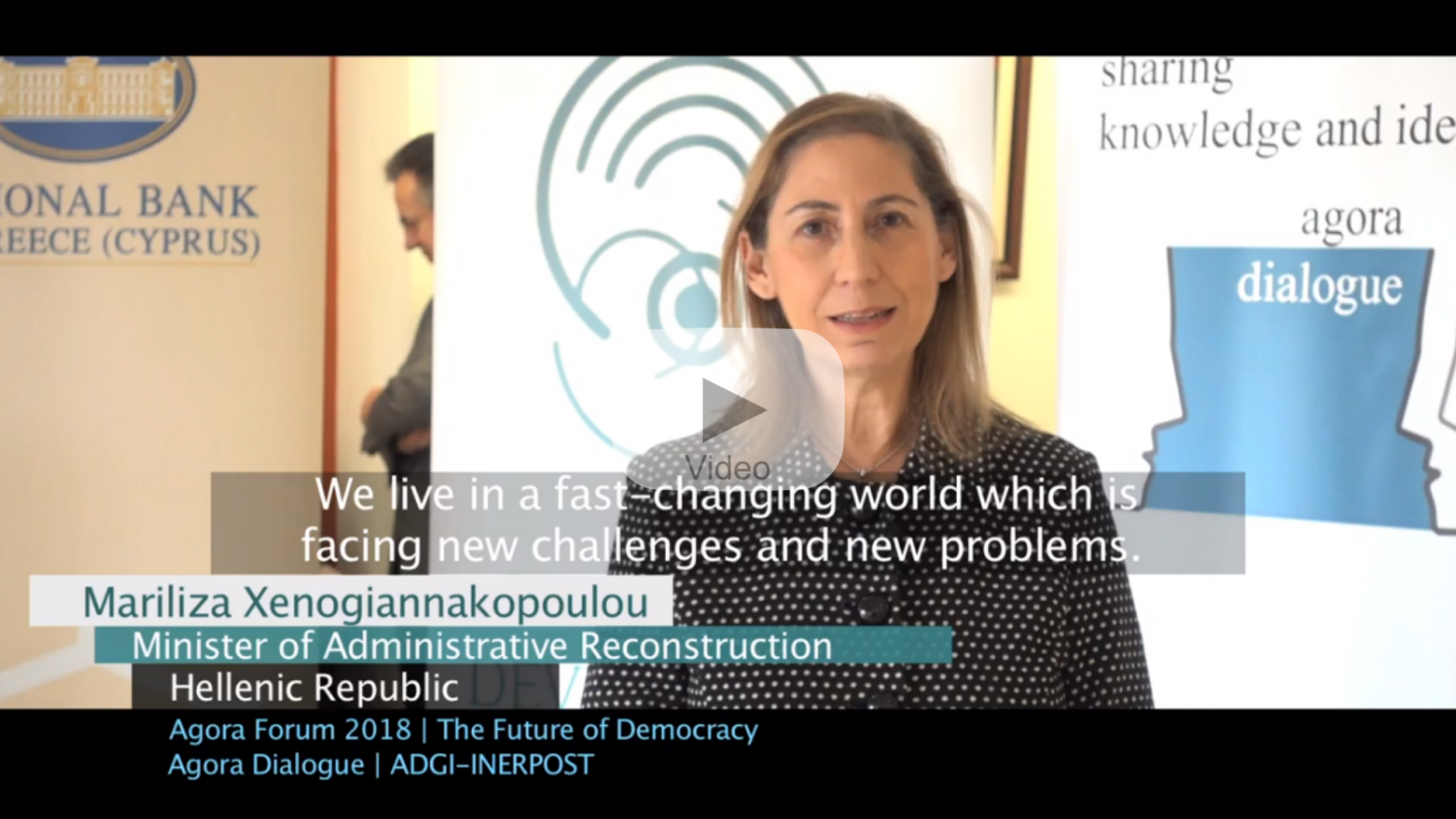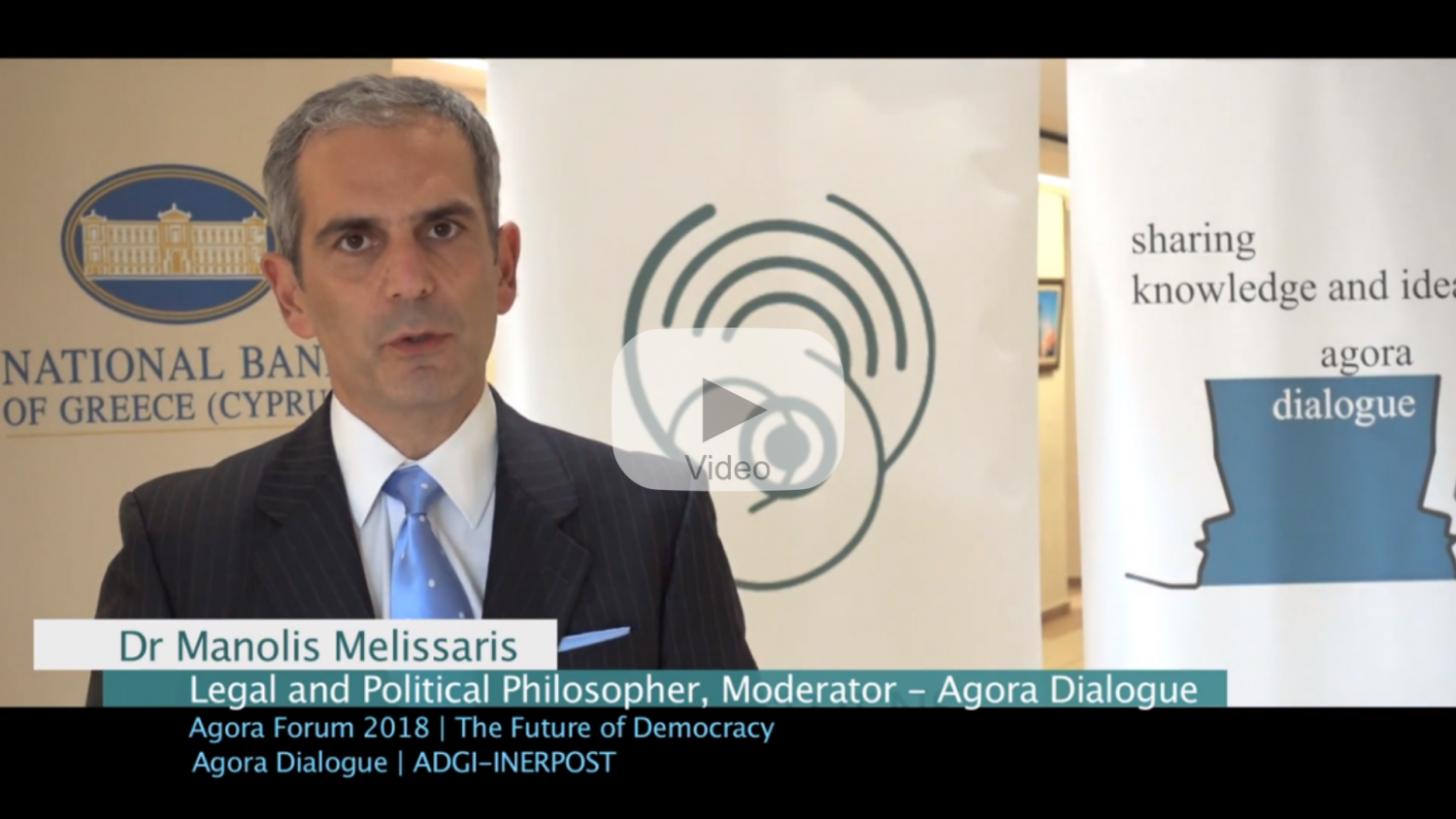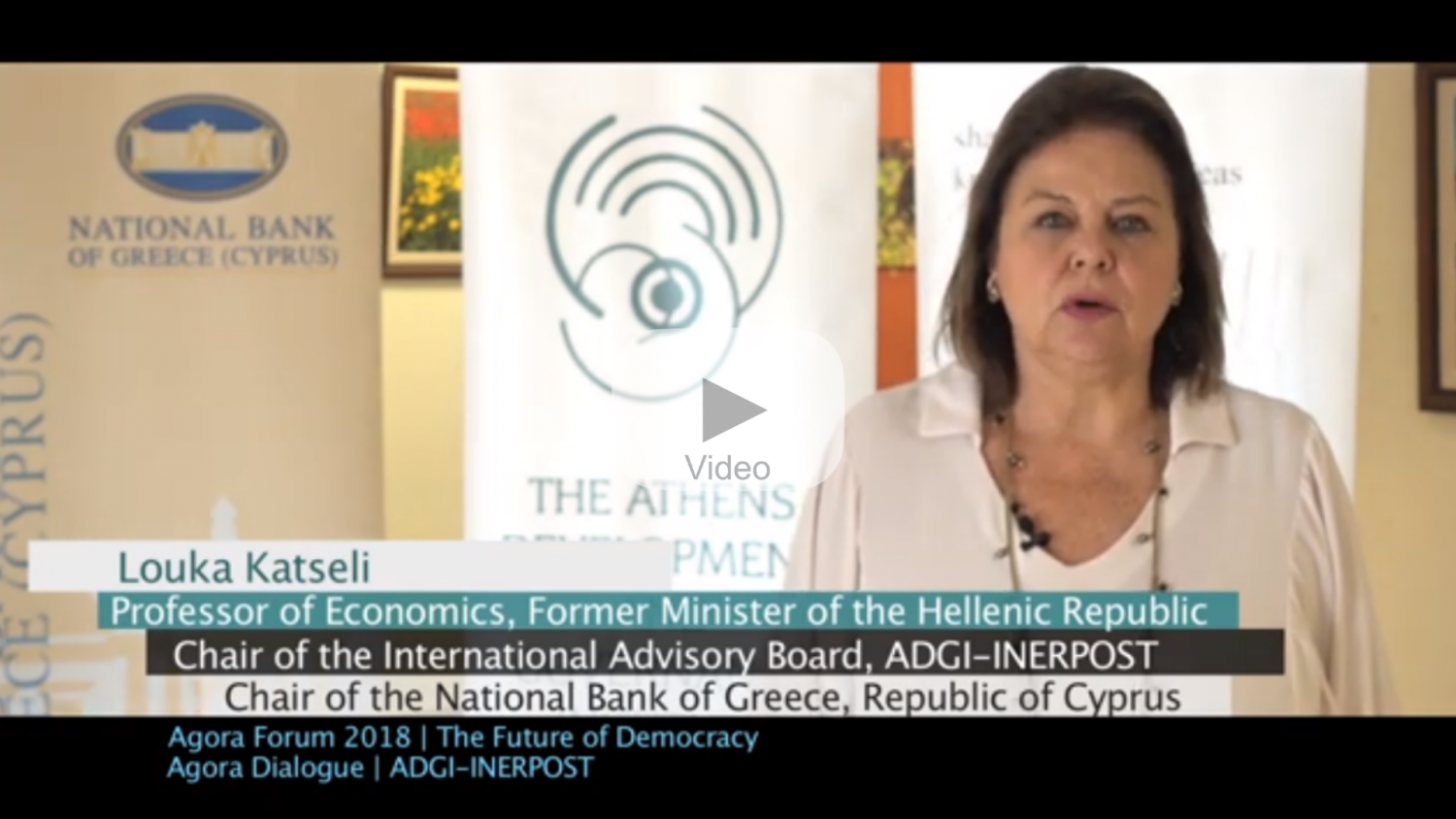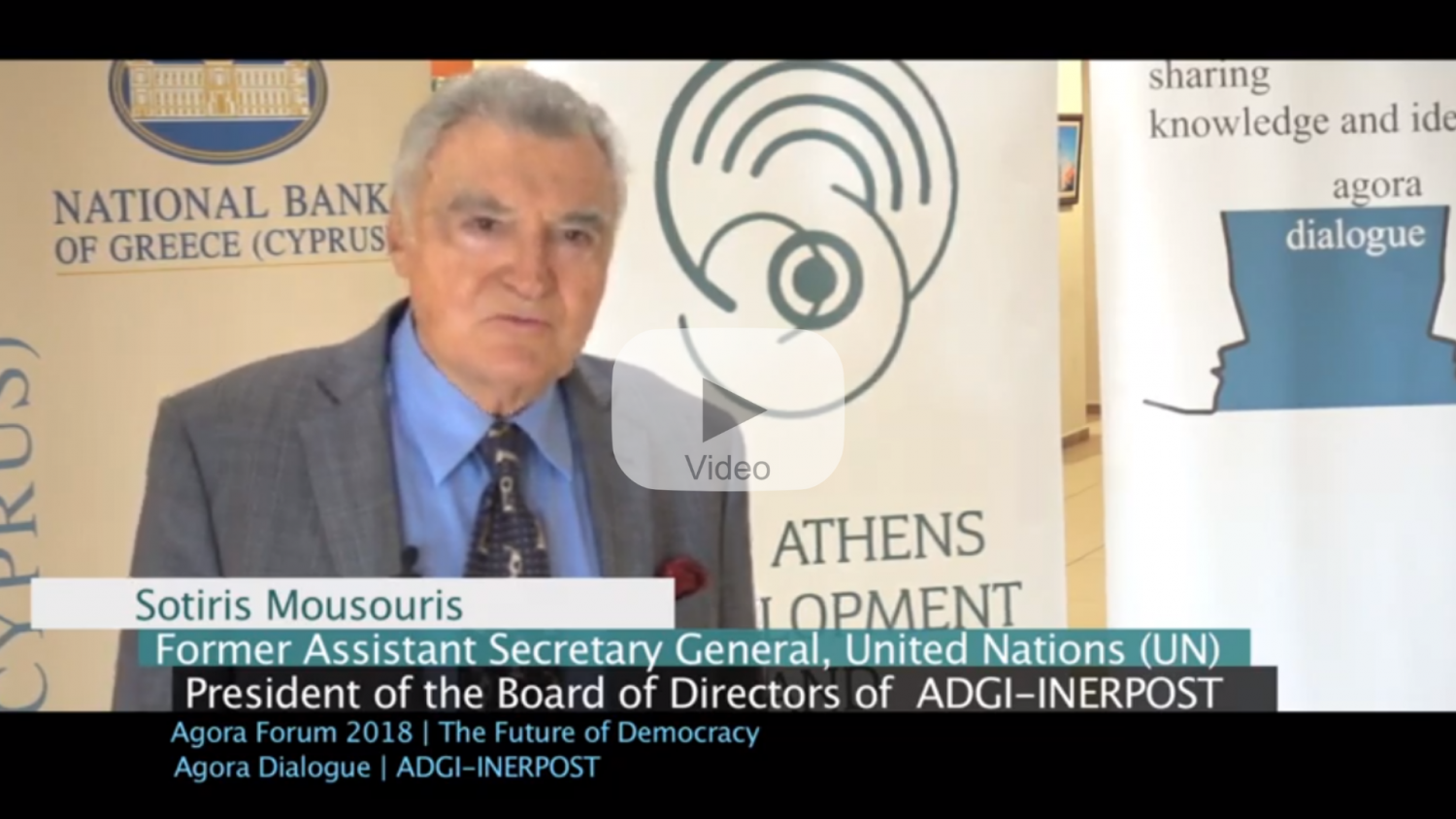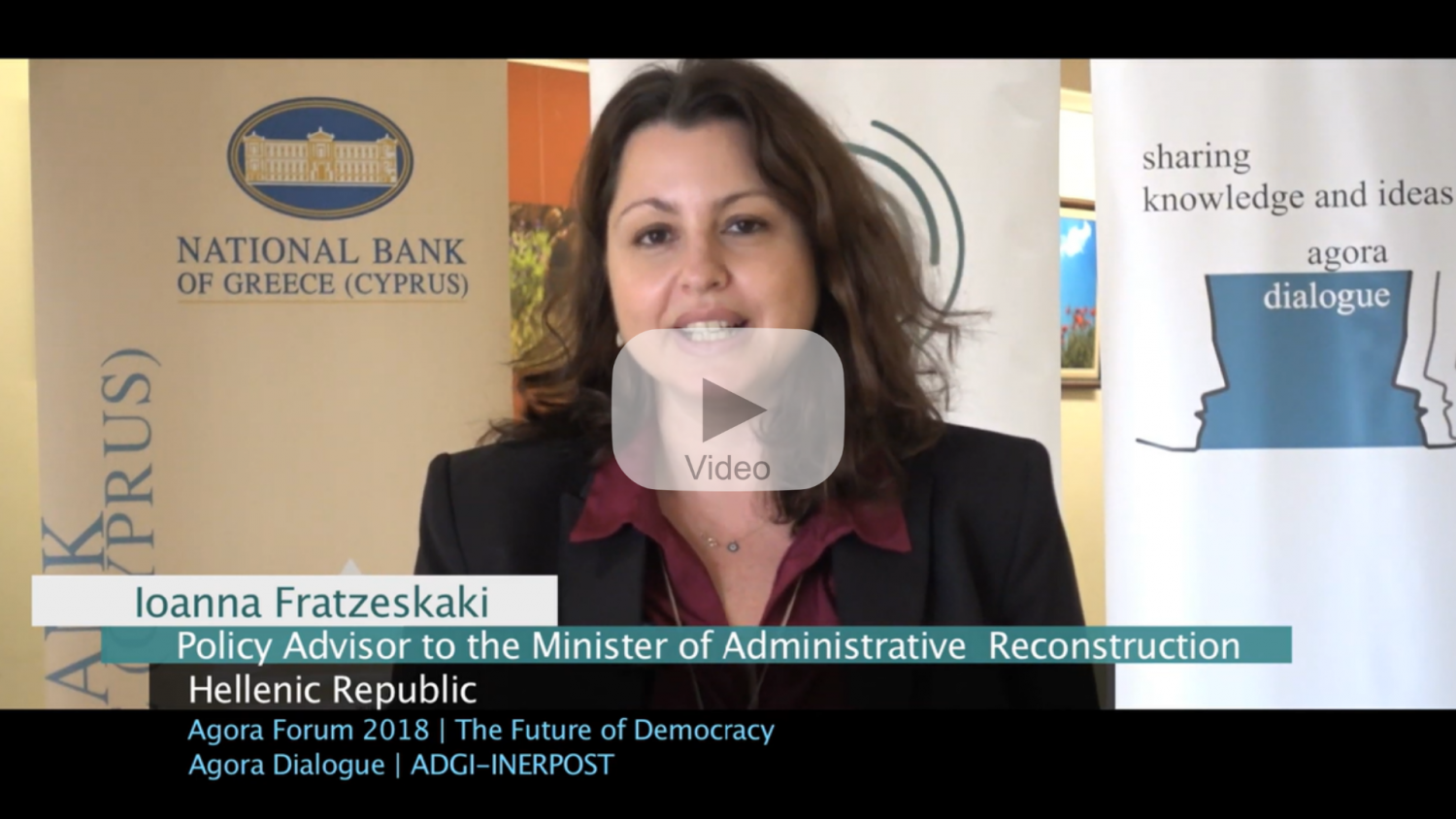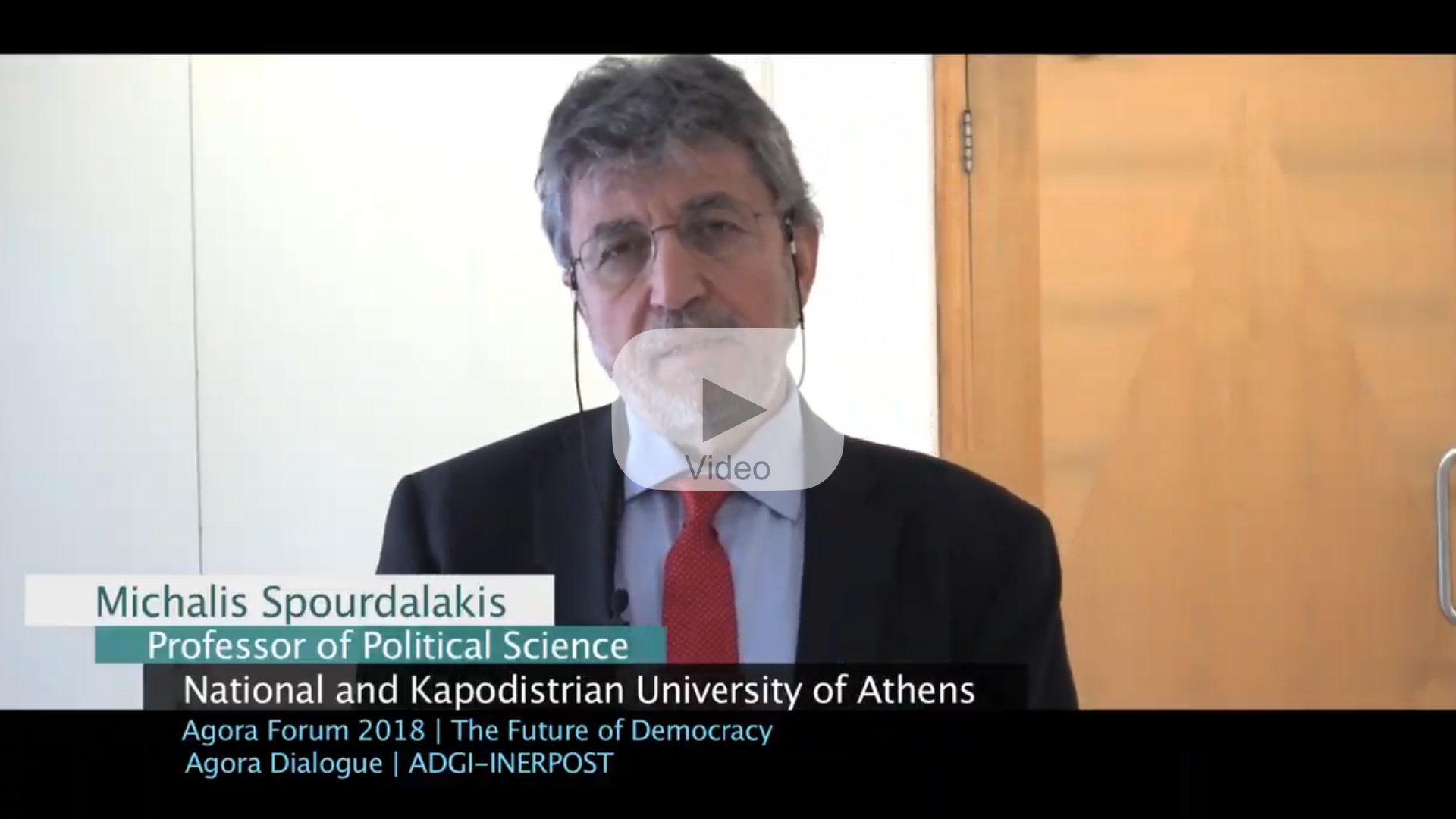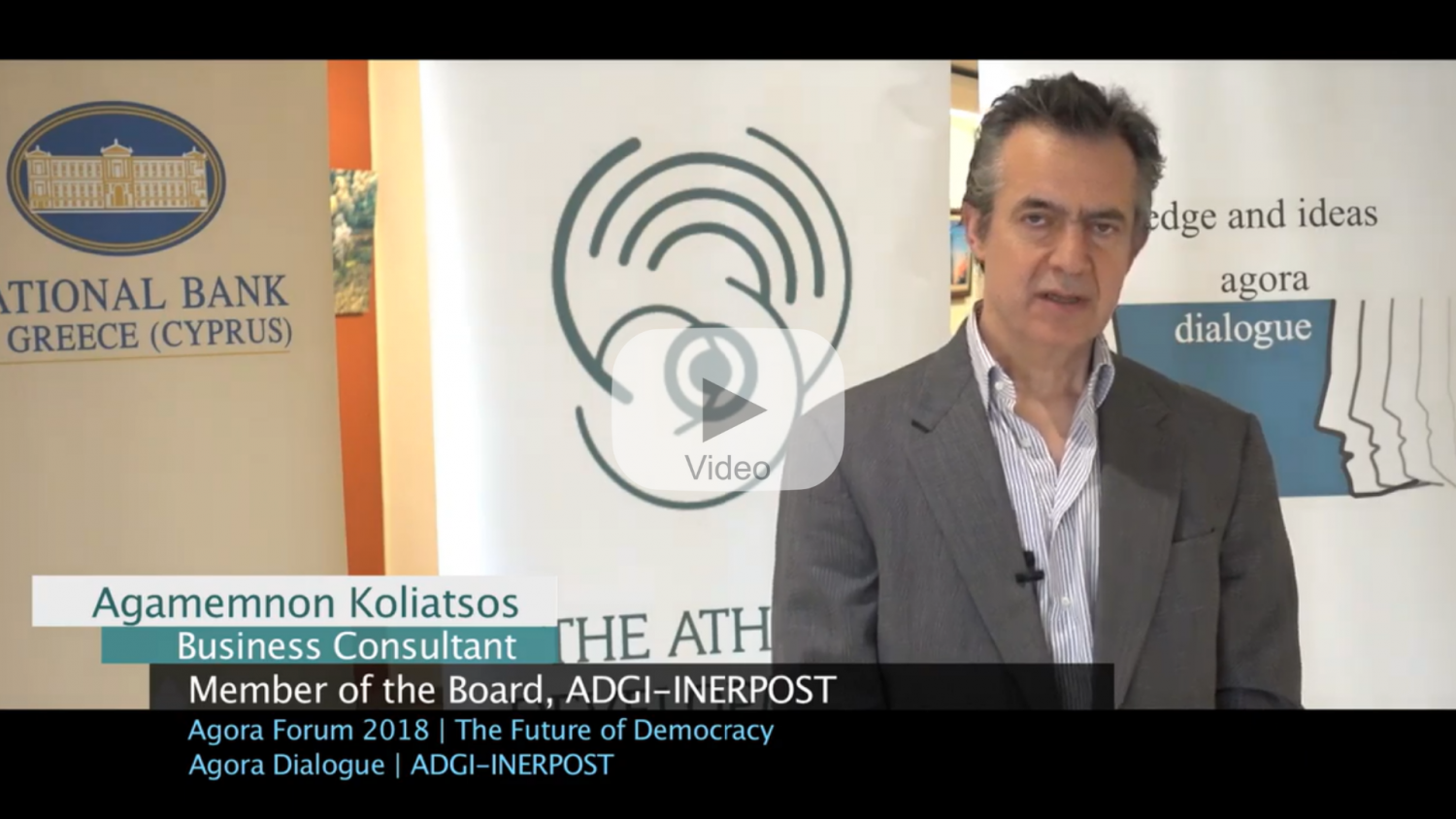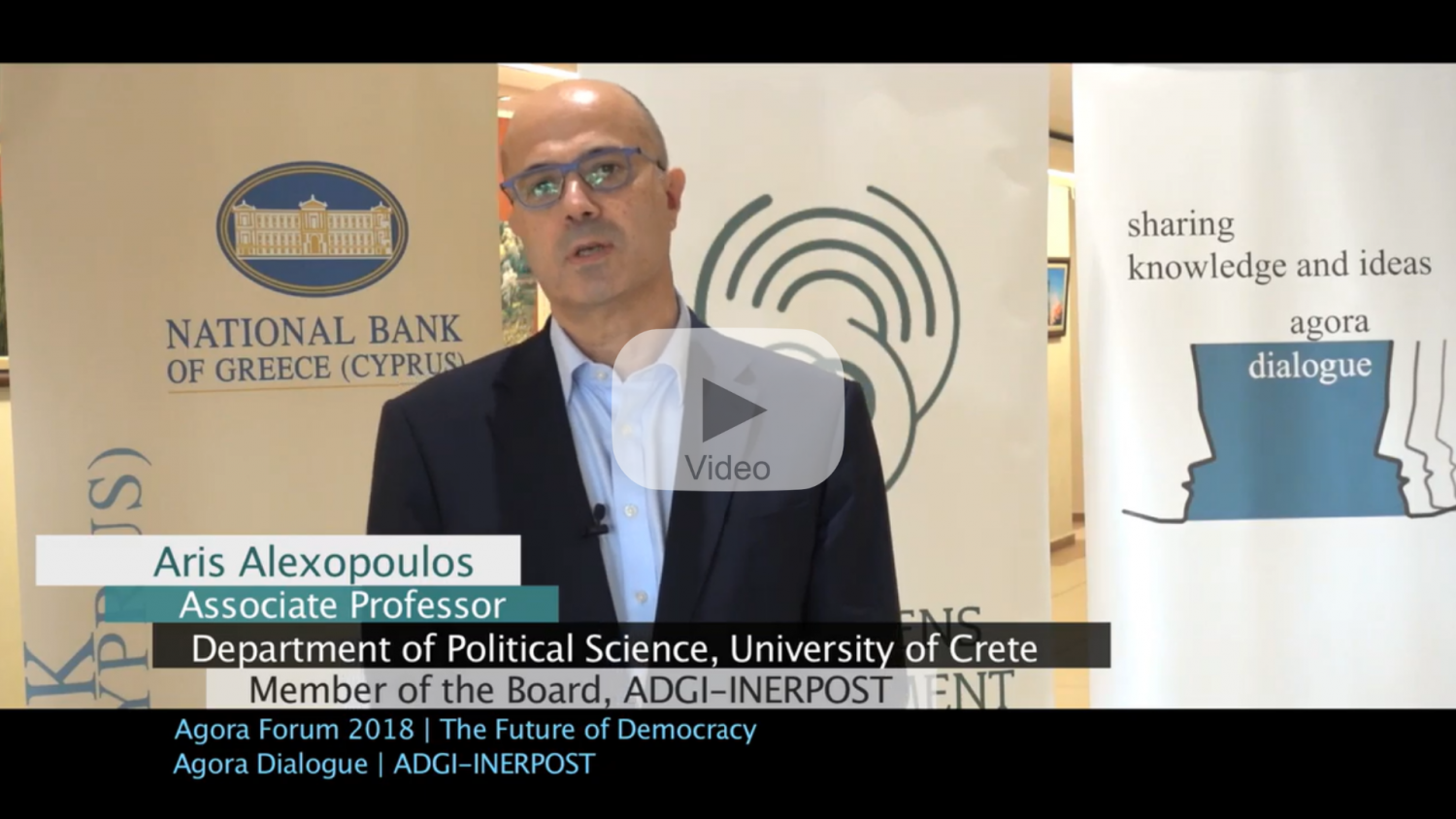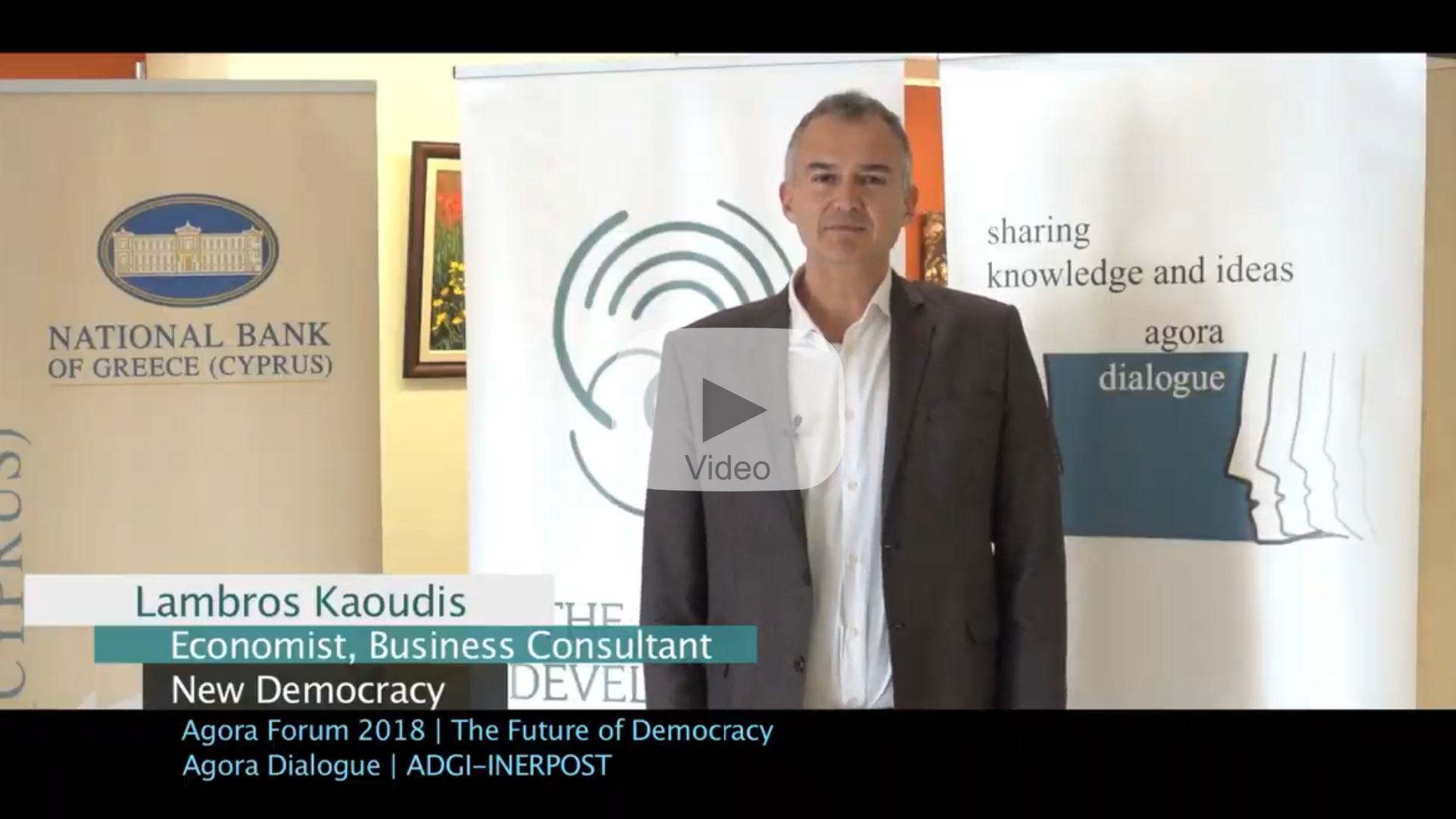Basic points of the speech given by Minister of Administrative Reconstruction Mariliza Xenogiannakopoulou at a conference, in Cyprus, themed ‘The future of Democracy.’
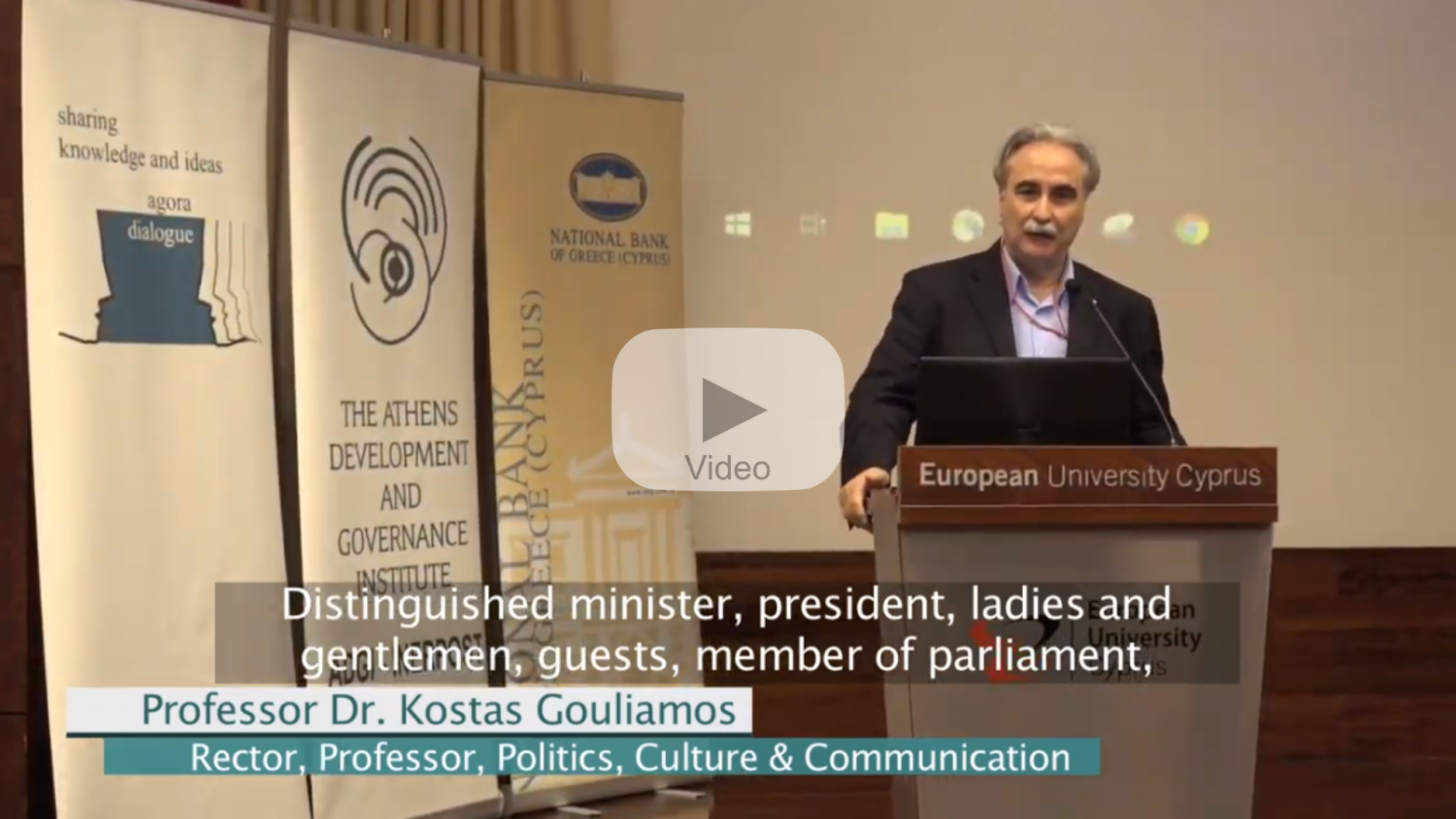 Welcome | Keynote Address | Presentation of the Report of the Independent Commission for Sustainable Equality (ICSE) and of the Outcomes of the Forum
Welcome | Keynote Address | Presentation of the Report of the Independent Commission for Sustainable Equality (ICSE) and of the Outcomes of the Forum
-I feel particularly moved every time I come to Cyprus because I belong to a generation that was aware of and grew up during the regime change and through the Cyprus tragedy. In every position I have served in during the course of my professional career, at European institutions and in politics, I contributed, I always tried to contribute, to a viable and fair solution to the Cyprus Problem. During the 90s in particular, when we were battling for Cyprus’ (EU) accession path at the European institutions. A process that was a great stroke for justice for Cyprus and for its accession to the European Union without political preconditions.
-It is true that in the last 25 years, following, 1989, there was, at the start, a great euphoria, and many believed in and hoped for the start of a new era for humanity. Many spoke too soon about the end of history. Eventually, the end of history did not, of course, come about, but what we saw developing was an internationalization of the markets and a globalization of the economy without any control or rules set in place. We saw great development of the financial system along with new technologies that assisted the entire world, without control or regulation. We also saw the financial capital gradually begin to dominate along with the internationalisation of the economy; taking a leading place above Politics and Institutions. And, of course, when the economic crisis broke out 10 years ago, we saw the tangible results of this emerge, not only in the economy with the recession and great social and regional inequalities, but we also experienced the downgrading and marginalisation of the Institutions and the significant blows to the proper functioning of democracy.
-Because, at the end of the day, it is an issue of collective European and international political will whether there are rules and if these are enforced and there are political consequences. We see this all over Europe today, through the concern and the insecurity peoples are living in, European institutions being weakened, irregular institutional forms making their mark, making decisions, even within the Eurozone. And of course, in this manner, conditions are created for fascist, far-right, intolerant phenomena that no one could have anticipated in a modern Europe, in the modern world of the 21st century, to once again raise their head and threaten, in a different way, our societies and democracies.
-Collective political will is essential because financial growth must not be halted, the question is how the financial system and its consequences on Politics and the Institutions can be regulated. And, ultimately, how this will function. For people, for Institutions, for Growth and for Individual Rights, or is it a process moving ahead as an end in itself, for profit and the process of the eventual actual imposing of the financial system upon Politics and the Institutions? This is what we are facing and experiencing now. It is noteworthy that the Eurozone, from a certain point onwards, sporadically and haphazardly during the crisis developed institutionally in disharmony with The Treaty of Lisbon. During the crisis, we saw entire Chapters of the European Treaty of Lisbon, such as social rights, collective negotiations and public services, literally ‘freeze,’ particularly in countries that entered an (adjustment) programme and memorandum.
-The source of Euroscepticism is behind this process along with the weakening of European Institutions and the eventual disinterest and abstention from public life by citizens, who feel disappointed, their problems not addressed through the Institutions. And this is where the danger of efforts to find individual solutions comes in. For them to no longer believe in a collective effort, or to turn to align themselves with extreme voices. The emergence of far-right and populist leaders in Europe is not incidental.
-Europe has encountered two great crises over the last 10 years. The financial one, which was approached with narrow-minded, one-dimensional and obsessive political austerity — while the USA made a different choice with President Obama opting for an expansive crisis policy — and the refugee (crisis), in which Europe is unable to function collectively on the basis of solidarity. The credible and collective management of both crises failed.
– The question today is ‘what is the road forward,’ because we must provide perspective and face the root of the problems. That is to say, the financial and social, but also collective political will on a European level. The notion of public interest through Democracy that we are fighting to have in the 21st century is fundamental. During a time of crisis and the prevalence of a neoliberal memorandum, as well as of globalisation, and while Public Administration has been targeted and depreciated in Greece and all of Europe, the notion of public interest has undergone two mutations or depreciations:
- a) it is either presented as a circumstantial common interest that is developed through the Media and the financial interests into how it is understood today
- b) or its meaning is shrunk into financial public interest which, let us not fool ourselves, is the dominant understanding in Europe. The Troika’s visits and the imposing of memorandums in countries, belonged to a process of imposing technocratic practice and mechanical transfer, without these social and collective analysis of the needs of each country, and in a chastising spirit, at first, in Greece and Cyprus.
– The concept of public interest comes from the people (Demos as in Democracy). So, public interest is not something that is defined by the Media or connected only to a budget. It involves interest the content of which in an organised, democratic and collective manner, and which is defined in terms of Democracy and the Institutions. It requires grassroot expression, a Parliament, democratic legitimisation. As a result, to consolidate, restore and strengthen Democracy, this is a requirement of not just freedom for societies and human rights, but also a condition for sustainable growth, for a prosperous society with social rights and one that truly expresses and works towards the collective good.
-There is a need for a battle for the above goals to be carried out on three levels: internationally, within the EU and nationally along with the European level. Europe must act collectively because each country cannot face this on its own. The question we are being called on to answer is ‘whether the future of humanity and history will continue to be written by the people through free and democratic will, or by some arbitrary, noninstitutional financial centres that act without any control imposed on them.’ I believe that this is a question that deserves to be addressed in a positive manner.
The conference was organised by European University Cyprus, in cooperation with Agora Dialogue and Institute for Research & Policy for Development and Governance (INERPOST).
- The Agora Forum 2018 – The Future of Democracy
- Agora Forum 2018 – The Future of Democracy: a summary of day one
- Agora Forum 2018 – «Το μέλλον της Δημοκρατίας»
- Μαριλίζα Ξενογιαννακοπούλου: Ανάγκη για αλλαγές στην Ευρώπη
Acknowledgments
Famagusta Chamber of Commerce and Industries
Human Rights Arts & Film Festival
National Bank of Greece (Cyprus)

